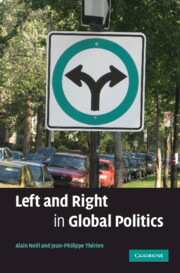Book contents
- Frontmatter
- Contents
- List of tables
- List of figures
- Acknowledgements
- Introduction
- 1 A clash over equality
- 2 A worldwide value divide
- 3 Two tales of globalization
- 4 The rise of the modern state system (1776–1945)
- 5 The age of universality (1945–1980)
- 6 The triumph of market democracy (1980–2007)
- 7 Twenty-first-century rapprochement
- 8 The core currency of political exchange
- Conclusion
- Index
- References
8 - The core currency of political exchange
Published online by Cambridge University Press: 05 September 2012
- Frontmatter
- Contents
- List of tables
- List of figures
- Acknowledgements
- Introduction
- 1 A clash over equality
- 2 A worldwide value divide
- 3 Two tales of globalization
- 4 The rise of the modern state system (1776–1945)
- 5 The age of universality (1945–1980)
- 6 The triumph of market democracy (1980–2007)
- 7 Twenty-first-century rapprochement
- 8 The core currency of political exchange
- Conclusion
- Index
- References
Summary
The left–right distinction, observe political scientists Michael McDonald, Silvia Mendes, and Myunghee Kim, is the “core currency of political exchange.” Like price and quantity in economic exchange, these notions provide a simple and universal language that helps citizens, politicians, and experts make sense of politics. Without them, collective decisions and popular control over elected politicians would be very difficult, and indeed almost impossible. Intercultural and international debates would also lose much coherence and become hard to comprehend. But is the left–right distinction powerful enough to extend beyond the politics of equality and distribution it usually captures, and help us understand other global issues? And what does this language mean for the study of global politics?
The first question concerns the heuristic value of the left–right dichotomy. Even among those who would agree that the cleavage between the left and the right is an enduring and encompassing one, many would contend that, in the end, it remains too simplistic to account for the complex universe of contemporary world politics. Many issues, they would argue, simply reflect other divisions, outside left–right dynamics. There is no denying that global politics does not begin and end with the left and the right. Religious differences, for instance, have been and remain a major source of conflict in the world. Still, as the core currency of political exchange, the left–right cleavage covers and shapes most questions.
- Type
- Chapter
- Information
- Left and Right in Global Politics , pp. 198 - 230Publisher: Cambridge University PressPrint publication year: 2008



